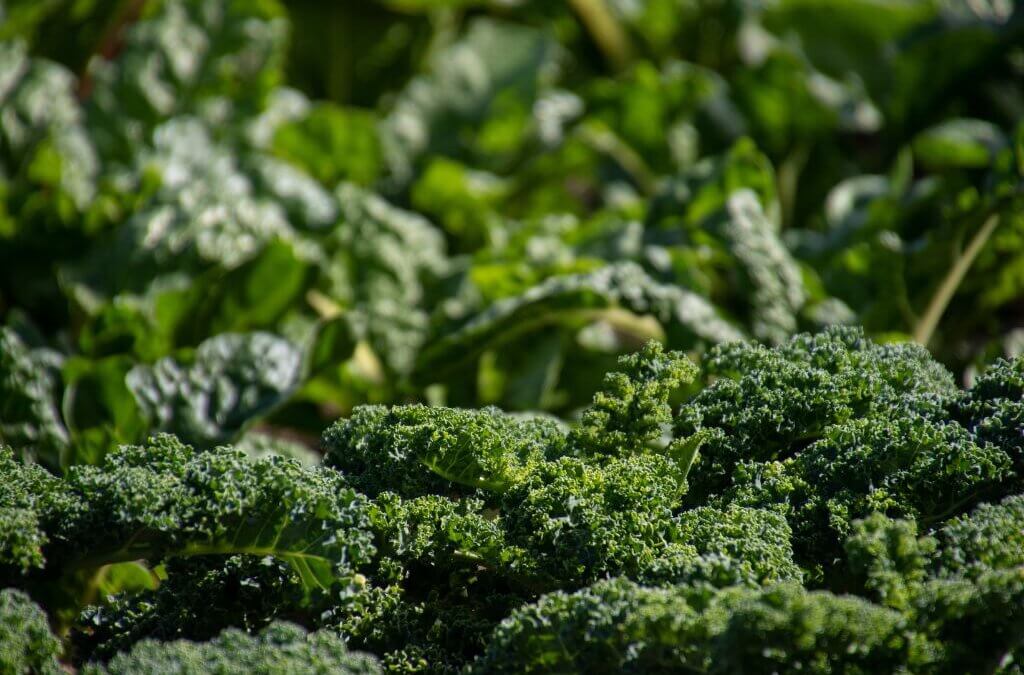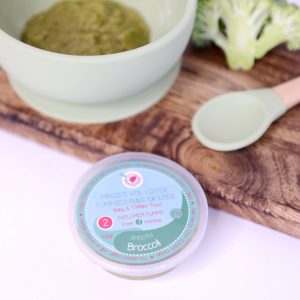By Lidia de Klerk-Venter RD(SA)
As a parent mastering the art of introducing solids to your baby effectively and having them enjoy the food you serve is an achievement that is worth celebrating. It can feel like a daunting task before you get started. When the initial introduction of basic starchy foods, some yellow or orange vegetables and some blander fruit may be done with ease, introducing green vegetables can often feel like a big hurdle to overcome.
Why are green vegetables sometimes more difficult to introduce?
The biggest reason that can make it tricky to introduce green vegetables is their bland flavour and somewhat bitter aftertaste. Especially when your baby has been exposed to some sweeter flavours, this may initially taste strange to them. Texture wise it also differs from other smoother vegetables.
Why are green vegetables so important to include?
While all vegetables surely offer great benefits to babies, green vegetables have unique attributes that often don’t come from other foods. These benefits include:
Iron
Green leafy vegetables are sources of non-heme iron. Non-heme iron is more difficult to absorb than heme iron (which we predominantly get in animal proteins), but is still a valuable source. Breastfeeding babies have depleted iron stores around 6 months of age and benefit greatly from natural sources of iron. Supplements may often lead to constipation, which makes food sources even more important to focus on.
Folate (Vitamin B9)
One of the many essential vitamin Bs is folate. It is important for the production of red and white blood cells, for proper brain health and development and for the production of DNA and RNA.
Vitamin K
Known as the blood clotting vitamin, vitamin K is essential for the proper function of platelets as well as the formation of bone and the regulation of calcium levels.
Vitamin C
Vitamin C supports immune function and is vital in the production of collagen and wound healing. It also helps to absorb iron.
Calcium
Although green vegetables aren’t the main source of calcium in a baby’s diet, they do contribute to their calcium intake. Calcium is vital for bone growth and also supports function of muscles, the heart and nerves.
Vitamin A
Vitamin A is essential in eye health, growth and development, wound healing and immune function.
Studies have shown that the inclusion of green vegetables throughout your life has a significant effect on cognitive health and lowers your risk for heart disease and certain cancers.
How to introduce green vegetables to babies
Age-appropriate presentation is important in the introduction of leafy greens. Ensuring that it is thoroughly cooked and pureed after steaming or boiling makes introduction the easiest. Usually it is about a month after solid introduction has started.
Remember that your baby doesn’t know these foods yet and it is vital to not add salt or sugar to vegetables when introducing them. While you may think that it adds flavour, exposing your baby to these will affect their taste perception and may harm their health.
Green vegetables can however be mixed with other foods to enhance the flavour and to add nutrients. Possible additions can include avocado, potato, rice or quinoa or mixing it into hummus. Basic herbs can also be used.
Can green vegetables cause gas or bloating in my baby?
Quite a few of the green vegetables are known to be gas forming. However, it doesn’t mean that all of them will cause bloating in your baby. While gas may cause discomfort, a small amount won’t be harmful. If your baby has a tendency to have gas, keep a food diary to track what foods may lead to this. Green vegetables that may be more gas forming include broccoli, brussels sprouts, cabbage, cauliflower, asparagus, green peppers and peas.
While the initial introduction of green vegetables may seem daunting, offering it multiple times helps your baby to get used to the flavour and adds excellent nutrients to their diet. Remember that your baby will gradually start eating family foods, so be sure to include these in your diet as well.
References:
Morris, M. C. et al., 2018. Nutrients and bioactives in green leafy vegetables and cognitive decline. American Academy of Neurology.
My Health Alberta. 2021. Gas and bloating in children: care instructions.
Plant Based Juniors. 2020. Adding greens to your baby’s diet.









